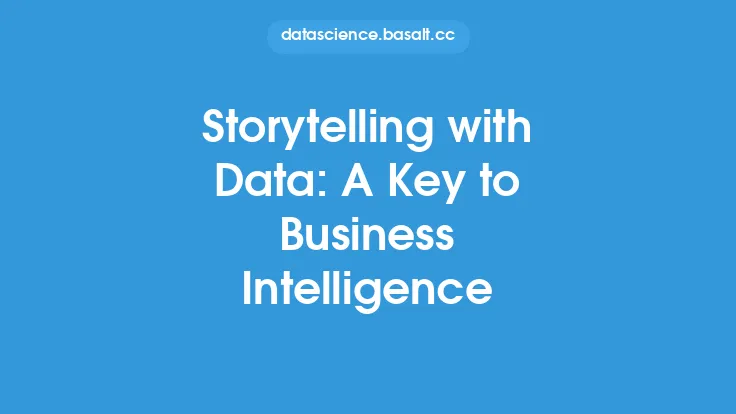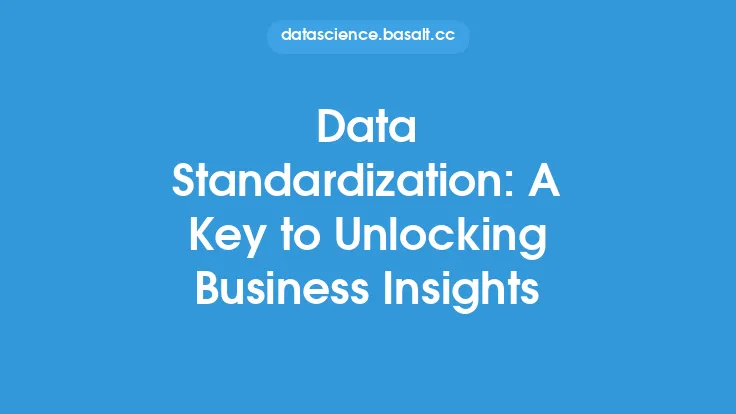In today's data-driven world, organizations are constantly seeking ways to unlock insights from the vast amounts of data they generate. Big data engineering has emerged as a crucial discipline that enables businesses to extract value from their data, driving informed decision-making and competitive advantage. At its core, big data engineering involves the design, development, and maintenance of large-scale data systems that can handle the complexities of big data. This includes the integration of various data sources, processing and storage of massive datasets, and the application of advanced analytics to uncover hidden patterns and relationships.
Introduction to Big Data Engineering
Big data engineering is a multidisciplinary field that combines concepts from computer science, software engineering, and data science. It requires a deep understanding of data processing, storage, and retrieval, as well as expertise in programming languages, data modeling, and data governance. Big data engineers work on designing and implementing data pipelines that can handle large volumes of data, ensuring that data is properly ingested, processed, and stored for analysis. They also develop and maintain data architectures that support real-time data processing, batch processing, and interactive analytics.
Key Components of Big Data Engineering
Several key components are involved in big data engineering, including data ingestion, data processing, data storage, and data analytics. Data ingestion refers to the process of collecting and transporting data from various sources, such as social media, sensors, and logs, into a centralized system. Data processing involves transforming and preparing the data for analysis, which can include data cleaning, data transformation, and data aggregation. Data storage refers to the management of large datasets, which can be stored in distributed file systems, NoSQL databases, or relational databases. Finally, data analytics involves the application of statistical and machine learning techniques to extract insights from the data.
Big Data Engineering Tools and Technologies
A wide range of tools and technologies are used in big data engineering, including Hadoop, Spark, NoSQL databases, and cloud-based platforms. Hadoop is an open-source framework that enables the processing of large datasets across a cluster of computers. Spark is a fast and flexible data processing engine that can handle real-time data processing and machine learning workloads. NoSQL databases, such as MongoDB and Cassandra, are designed to handle large amounts of unstructured and semi-structured data. Cloud-based platforms, such as Amazon Web Services and Microsoft Azure, provide scalable infrastructure and managed services for big data engineering.
Data Processing Frameworks
Data processing frameworks are critical components of big data engineering, enabling the efficient processing of large datasets. Apache Hadoop's MapReduce is a popular data processing framework that allows for batch processing of data. Apache Spark, on the other hand, provides a more flexible and efficient data processing engine that can handle real-time data processing, batch processing, and interactive analytics. Other data processing frameworks, such as Apache Flink and Apache Beam, provide additional capabilities for stream processing and data integration.
Data Storage Solutions
Data storage solutions are also essential in big data engineering, providing a scalable and reliable way to store large datasets. Distributed file systems, such as Hadoop Distributed File System (HDFS) and Amazon S3, allow for the storage of large amounts of data across a cluster of computers. NoSQL databases, such as MongoDB and Cassandra, provide a flexible and scalable way to store unstructured and semi-structured data. Relational databases, such as MySQL and PostgreSQL, are also used in big data engineering, particularly for storing structured data.
Big Data Engineering Best Practices
To ensure the success of big data engineering projects, several best practices should be followed. These include defining clear project goals and objectives, developing a robust data architecture, and implementing a scalable and flexible data pipeline. Additionally, big data engineers should prioritize data quality and data governance, ensuring that data is accurate, complete, and secure. Finally, big data engineers should stay up-to-date with the latest tools and technologies, attending conferences and workshops to learn about new trends and innovations in the field.
Real-World Applications of Big Data Engineering
Big data engineering has numerous real-world applications, including customer analytics, predictive maintenance, and fraud detection. In customer analytics, big data engineering is used to analyze customer behavior and preferences, enabling businesses to develop targeted marketing campaigns and improve customer engagement. In predictive maintenance, big data engineering is used to analyze sensor data from equipment and machinery, predicting when maintenance is required and reducing downtime. In fraud detection, big data engineering is used to analyze transactional data, identifying patterns and anomalies that may indicate fraudulent activity.
Conclusion
In conclusion, big data engineering is a critical discipline that enables businesses to unlock insights from their data, driving informed decision-making and competitive advantage. By understanding the key components of big data engineering, including data ingestion, data processing, data storage, and data analytics, organizations can develop a robust data architecture that supports their business goals. By leveraging big data engineering tools and technologies, such as Hadoop, Spark, and NoSQL databases, organizations can efficiently process and analyze large datasets, extracting valuable insights that drive business success. As the field of big data engineering continues to evolve, it is essential for organizations to stay up-to-date with the latest trends and innovations, ensuring that they remain competitive in a rapidly changing business landscape.





